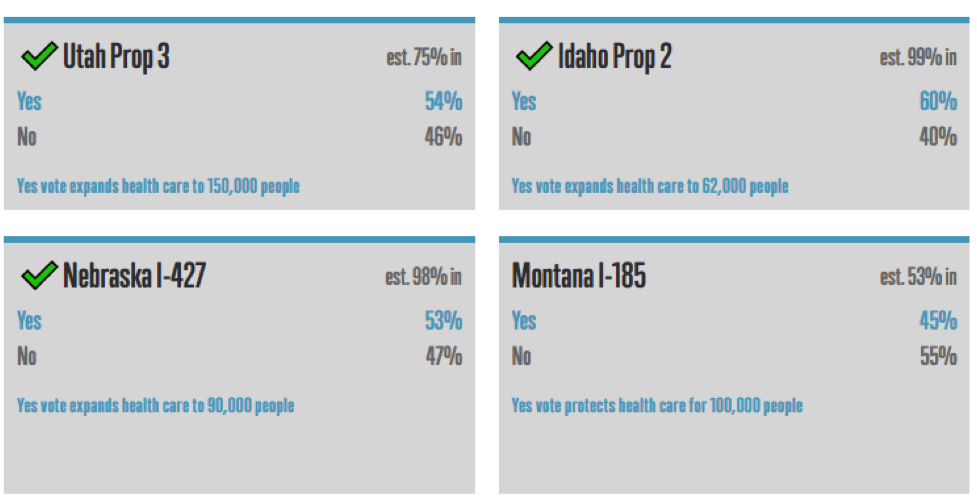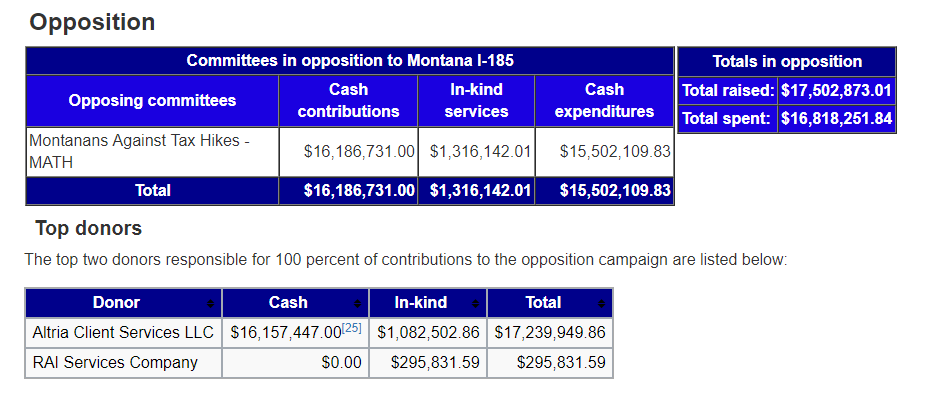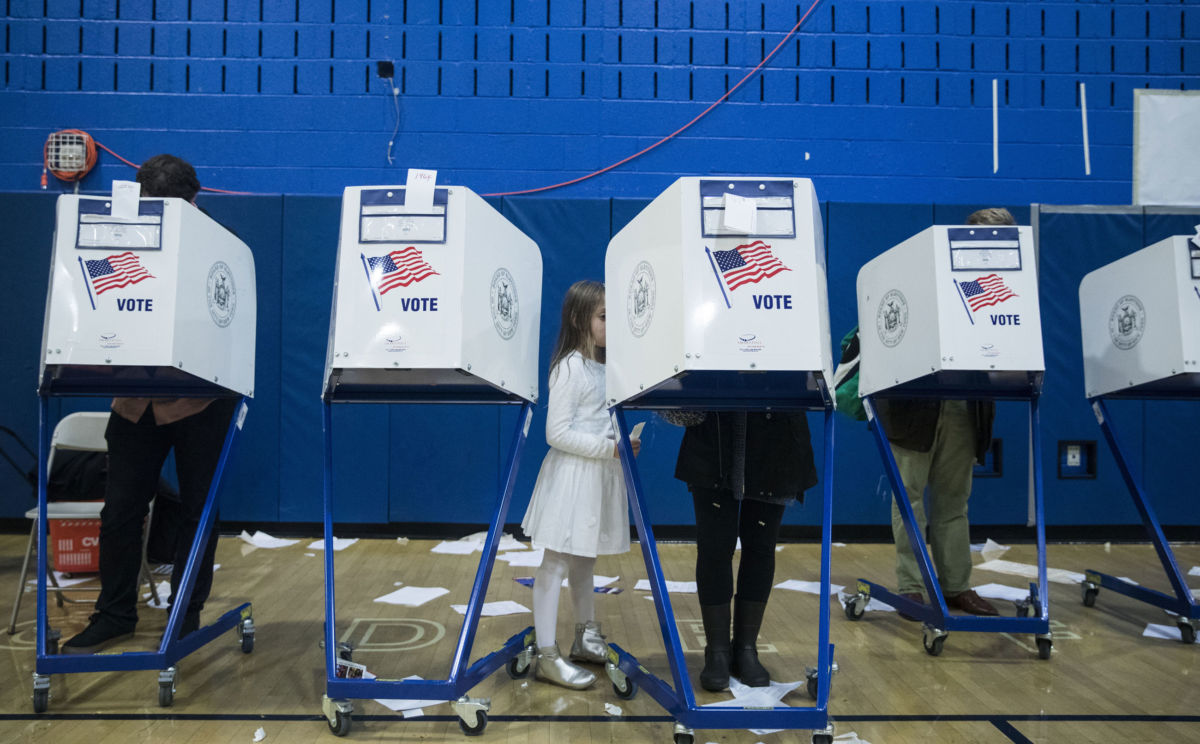Health care touched the 2018 midterm elections at nearly every level last night. The issue, according to many polls, is the top concern for Americans, and this sentiment was credited by many for the biggest headline of the night: the Democrats reclaiming the House of Representatives. It was, of course, the House GOP Caucus that passed arguably the most regressive health care bill in US history this term with its version of Trumpcare.
“Health care and pre-existing conditions won the Democrats the House,” said Chris Matthews to a group of agreeable hosts on MSNBC not long after they called the House for the Democrats. The point was made many times over the course of the evening.
While health care played a role in thousands of elections across the country last night, it played the most central role in several important ballot initiatives across the country. Medicaid expansion, most notably, was on the ballot in four deep-red states and won in three of them: Idaho, Nebraska and Utah. Another Medicaid expansion bill, which was complicated by a tobacco tax, was defeated in Montana. Medical marijuana initiatives also won in Missouri and Utah. An otherwise good night for progressives was tempered by the defeat of proposals for nursing staffing minimums in Massachusetts and a program for elder care in Maine, which was to be paid for with a tax on the wealthy.
In sum, advocates for health care justice felt a message was sent to politicians last night.
“This election proves that politicians who voted to repeal the Affordable Care Act got it wrong. Americans want to live in a country where everyone can go to the doctor without going bankrupt. Expanding access to health care isn’t a blue-state value or a red-state value; it’s an American value,” said Jonathan Schleifer, executive director of The Fairness Project, in a statement sent to Truthout this morning. The project supports many ballot referendums related to fairness and economic justice, including the Medicaid expansion referendums from this election.

Medicaid Expansion Wins in Three Red States
Medicaid expansion was a key part of the Affordable Care Act; it raised the eligibility range to 138 percent of the federal poverty line. The 2012 Supreme Court case NFIB v. Sebelius ruled that states could opt out of this expansion. Gallingly, 17 shameful GOP governors did just that, causing a coverage gap of about 2.2 million people.
Ever since, advocates have been pushing to expand Medicaid in these states, but with very limited success in state legislatures. Virginia passed a Medicaid expansion law, but added sinister work requirements which may violate the law. Frustrated by inaction, many advocates have since taken to ballot referendums. In 2016, for instance, Maine voted to expand Medicaid, though the state’s Gov. Paul LePage (who will be replaced with a Democrat as of last night) has been undermining the result ever since.
Last night’s result was gratifying for advocates, who have now helped Medicaid expansion to reach 36 of 50 states. Between the three states to expand the program, there will be an additional 330,000 people eligible for the program, advocates tell Truthout: about 90,000 each in Nebraska and Idaho and 150,000 in Utah.
The biggest victory was in Idaho (Proposition 2), where about 60 percent voted yes on Medicaid expansion. It was organized by Reclaim Idaho, Idahoans for Health Care and the Fairness Project. Combined supporters raised $1.7 million, compared with less than $100,000 by opponents of the referendum.
The vote was closest in Nebraska, where Initiative 427 passed by a margin of 53-42 percent.
“Waking up every day knowing your basic needs are met — that’s a big deal,” said Lora Curry, 52, of Lincoln, Nebraska. The initiative was also supported by the Fairness Project, which spent more than $1 million of the $2.8 million that supporters spent in total. No groups were officially registered in opposition to the initiative, although it was opposed by many conservatives in and out of the state.
In Utah, the referendum (Proposition 3) passed by a margin of 54-46 (as of 4:30 am with 80 percent of precincts reporting). Supporters, primarily Utah Decides HealthCare, spent more than $3.7 million in the campaign, while the only opposition money registered was $34,000 from the Koch-funded Americans for Prosperity.
The final results were closer than the polls, which showed that 62 percent favored the proposal as recently as October 13.
“Knowing my family will be able to afford … medical care when we need it is an enormous relief. Here in Utah, we care about our neighbors, and we proved that again tonight,” said Alecia Bales, 40, of Pleasant Grove, Utah, after the election.
The results had advocates celebrating the news on social media. Anna Kruk Corbin, who has been organizing to protect Medicaid for years, made the following observation early Wednesday morning:
The biggest winner tonight?#Medicaid
1. #MedicaidExpansion passed in Nebraska, Idaho & Utah.
2. The Democrat controlled House will prevent Medicaid cuts/caps.
3. The states that flipped to Dem governors will protect Medicaid on the state level.We did it! #MedicaidMatters
— Anna Kruk Corbin (@AnnaKrukCorbin) November 7, 2018
Tobacco Complicated Montana Referendum
The only ballot question where Medicaid expansion lost was in Montana with Initiative 185, or the Extend Medicaid Expansion and Increase Tobacco Taxes Initiative.
The Montana referendum, however, was complicated by the involvement of the powerful tobacco industry.
Big tobacco spent as much as $17 million to defeat the proposal, according to NPR, despite fewer than 200,000 smokers living in the state. The opposition went by the coalition name Montanans Against Tax Hikes (MATH), though 98.5 percent of its support came from Tobacco sources, Ballotpedia reports. Supporters spent just under $10 million.

Montana agreed to expand Medicaid in 2015, but this policy is set to end in 2019. This referendum was sparked by advocates who hoped to prevent this. Montana Republicans tried to add a work requirement supplement to the question in a special session but lacked the support to make it happen. The tally was 53 percent voting no, to 47 percent voting yes as of press time.
Medical Marijuana Passes in Two States
Marijuana has increasingly been the subject of ballot initiatives as well in recent years. Last night, two referenda legalizing medical cannabis were passed in two red states, Missouri and Utah. Oklahoma passed medical cannabis via a referendum in June of this year.
While recreational cannabis legislation garners more headlines these days, many states still have no medical marijuana laws in place. On Tuesday, Missouri voted to support Amendment 2 which allows “the use of marijuana for medical purposes.” It passed with 56.5 percent of the vote.
It was endorsed by Our Revolution, Sen. Claire McCaskill (the Democrat who lost a Senate seat on Tuesday) and various marijuana advocacy groups. The opposition was mostly from medical groups like the Missouri State Medical Association. (The American Medical Association and other state-wide chapters are militant in their opposition to current cannabis reforms for medical and recreational use). Dispensaries are expected to start opening in 2019.
Utah passed a medical marijuana ballot referendum as well last night, with about 53 percent of the vote. The ballot referendum process is not as strong in Utah as some other places, and members of the state legislature have announced their intention to override this proposition and replace it with some kind of legislative fix. A proposal to overwrite the law while preserving its key elements has been under way for some time in the state.
The issue may have helped increase voter turnout in the state.
“The emotionally charged decision on medical cannabis captured the attention of Utahns and helped drive them to vote,” reports the Salt Lake City Tribune, citing a poll showing 1 in 5 respondents in Utah credited the marijuana initiative as the primary motivation to vote.
Hospital Lobby Kills Nursing Ballot Referendum, Backed by Nurses in Massachusetts
In Massachusetts, a proposal for Safe Patient Limits was defeated handily. This initiative was pushed by the Massachusetts Nurses Association and supported by many progressives and progressive organizations, including Our Revolution, Bernie Sanders and Elizabeth Warren. Safe Patient Limits would force hospital staff a minimum level of nurses or face penalties. Nurses argued they are understaffed and unable to meet the needs of all their patients, while the hospitals argued the policy would lead to massive closures and waiting lists. The policy is not well understood, even among Massachusetts voters who spent months watching advertisements about it. Something like it was passed in California in 1999.
What might be most noteworthy is how successful the Massachusetts hospital industry was in crushing the proposal with the help of more than $17 million spent to defeat it. Polls initially showed popular support or perhaps a close race. But after the state’s hospital lobby hammered the airwaves and mail with hyperbolic ads for months, later polls showed the “no” side had a 27 point advantage.
Donna Kelly-Williams, president of the Massachusetts Nurses Association, accused hospital executives who “cried hysteria and chaos” of running a dishonest campaign. “These tactics, rooted in fear and confusion, seem to have worked,” she said.
Mainers for Home Care’s effort to instill a 3.8 percent payroll tax on incomes over $129,000 to fund universal home care for elderly or disabled residents was also killed. Like the Safe Patient Limits bill, it was endorsed by Our Revolution and many Democrats. It was voted down, however, by a margin of 63-37, according to The New York Times.
We have 10 days to raise $50,000 — we’re counting on your support!
For those who care about justice, liberation and even the very survival of our species, we must remember our power to take action.
We won’t pretend it’s the only thing you can or should do, but one small step is to pitch in to support Truthout — as one of the last remaining truly independent, nonprofit, reader-funded news platforms, your gift will help keep the facts flowing freely.
